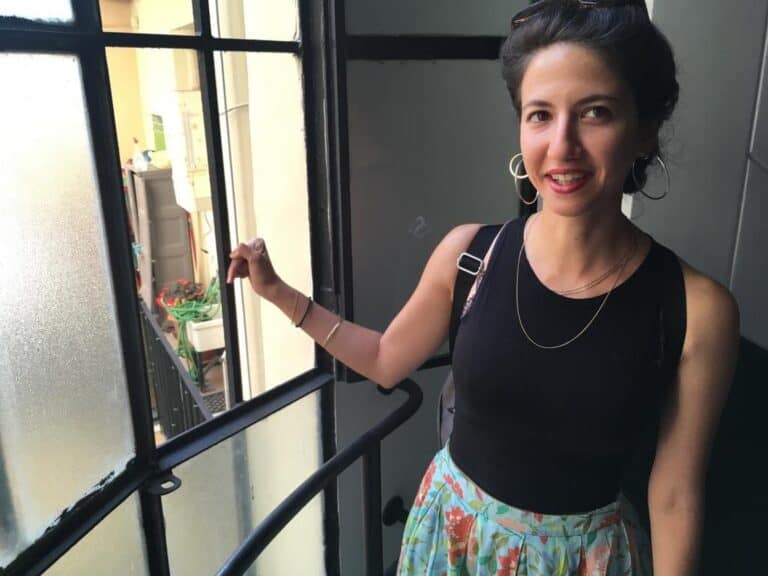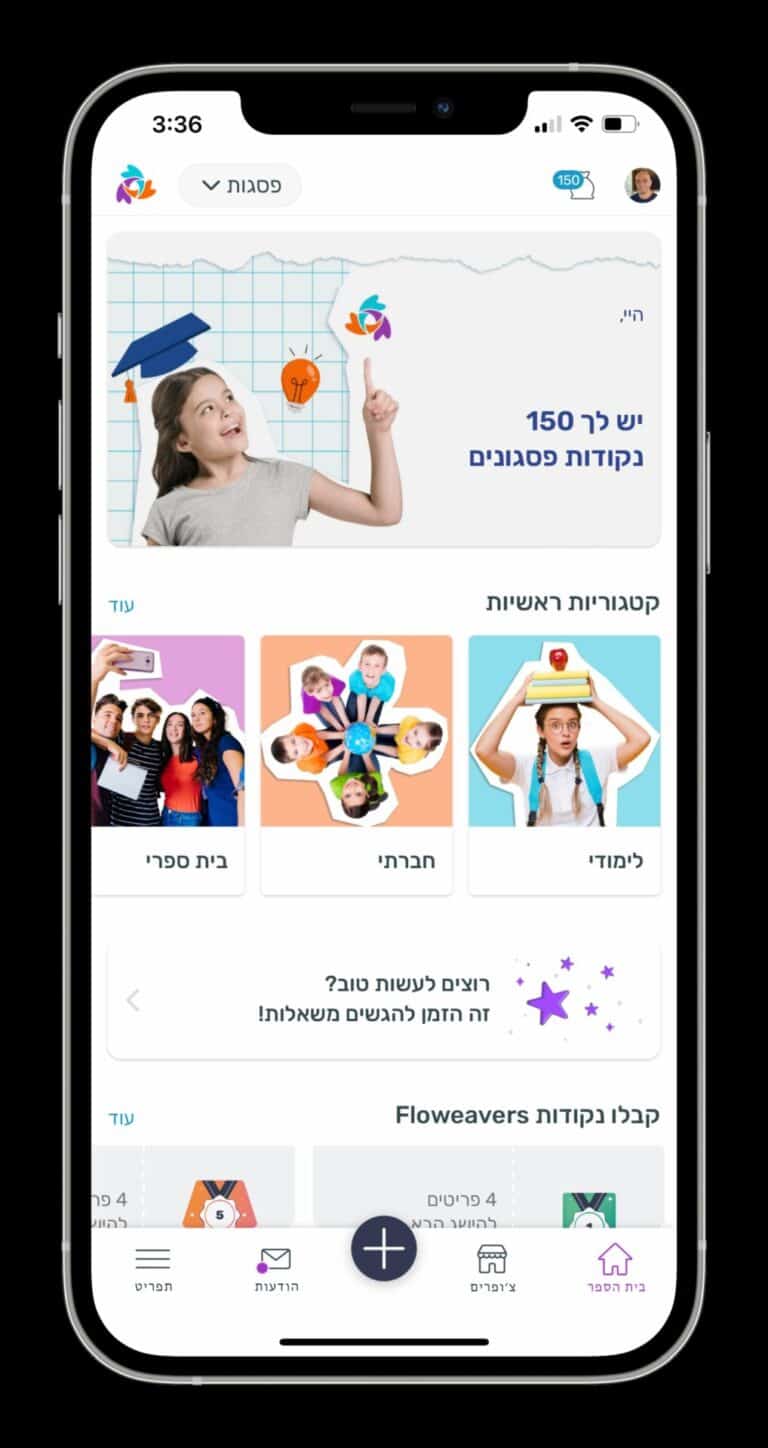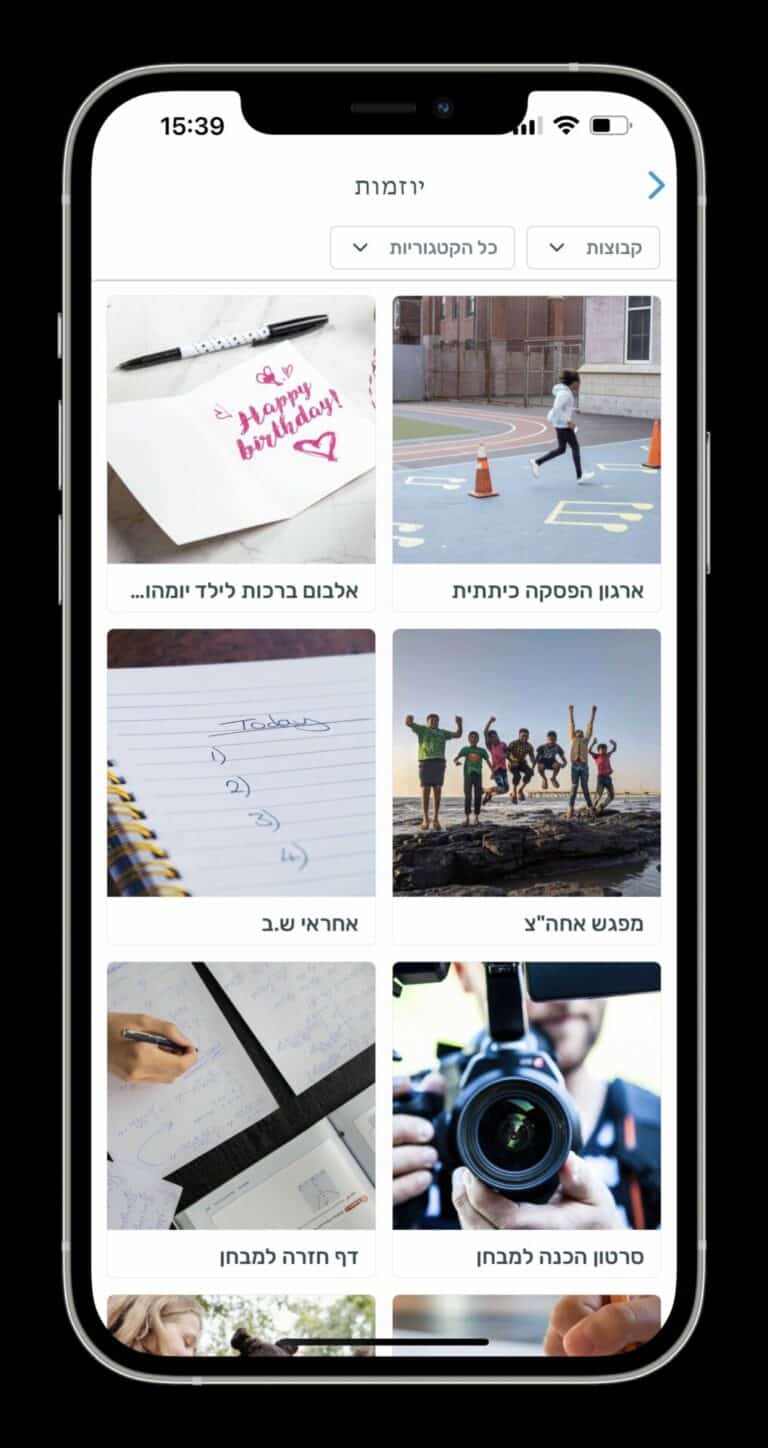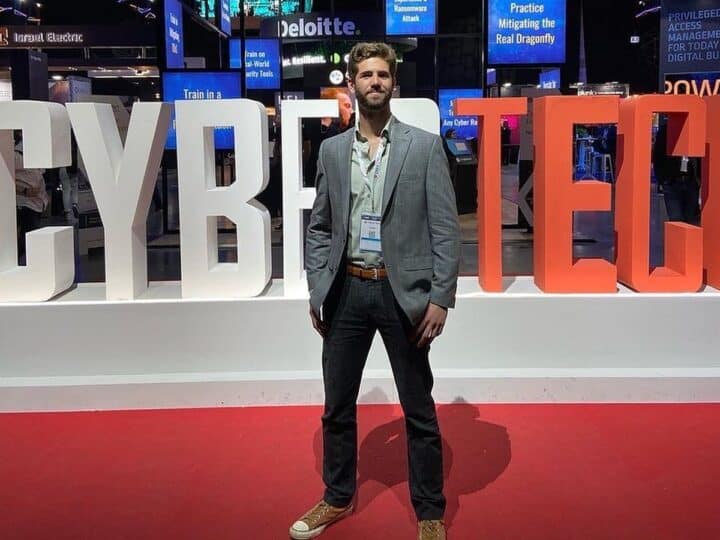It’s no secret that being a schoolteacher is not a lucrative endeavor.
Teachers are underpaid, overworked and generally underappreciated despite doing one of the most important jobs there is — raising the leaders and decisionmakers of the future.
This is a worldwide phenomenon. In England, the number of teacher vacancies doubled from November 2020 to November 2022. In the United States, across 37 states teacher vacancies grew by 35 percent between 2021 and 2023. In Israel, nine out of 10 public schools don’t have enough educators.
Increasing student involvement
Cofounded by a schoolteacher, the education app FloWeavers is attempting to alter this gloomy trajectory.
“I love my job, but I reached a breaking point where I thought to myself, ‘Either I’m going to do this differently, or I’m going to quit,” FloWeavers cofounder Tom Azulay tells ISRAEL21c.

The FloWeavers app allows teachers to increase student involvement during — and outside — class hours, improve students’ social skills, initiate collaborative projects and provide them with a fun and simple way to navigate the educational environment.
Teachers upload tasks to the app, which students perform independently in exchange for points toward “educational incentives” such as coming without a uniform shirt for a day, switching places in the class with another student for a day, private lessons with a teacher of their choice, and more.
On paper, these steps sound like ways to placate the children. But Azulay says that using the app creates order, which makes the job of the teachers much easier.
“The education system is very tough. It doesn’t develop skills [in children], while teachers are drowning in administrative tasks irrelevant to the actual job,” says Azulay. “The day-to-day tasks of a teacher in Israel are exhausting and not interesting.”
Azulay explains that the problem stems from a lack of manpower. “Teachers are interior designers, nurses and secretaries. It chips away at you. It happens in other professions as well, but at least there, you’re compensated accordingly.”
Some of the assignments that teachers can upload to FloWeavers are their own tasks that they wish to designate to students to ease the workload.
The app also serves as an organizational aid for teaching staff, who can upload tips on staging events and activities.

From punishments to rewards
Azulay, who is currently on maternity leave, has spent the past six years teaching at a “last chance” school for troubled youth in Bat Yam, a southern suburb of Tel Aviv.
She began the project as a pilot for the children in her class.
“In the beginning I was worried they would ask me for Coca-Cola as a reward for doing tasks. But to my surprise they asked to play their favorite songs or watch a movie in class together. I was privileged to find out so much more about them,” she says.
“I switched from picking out punishments for things they had done wrong to picking out rewards. It changed the dynamic. The kids began coming to school everyday without me calling them every morning.”
Students who were struggling — academically or socially — began to flourish.
“I had a student who had an arsenal of discipline problems. He broke all records,” says Azulay.
“But when we started the pilot, we discovered that he has an exceptional talent at editing videos. He became the school’s unofficial video editor and the class star. His mother later hugged me with tears in her eyes.”
Global aspirations
News of the successful pilot quickly spread to the Bat Yam municipality, which offered to pair up Azulay with tech entrepreneur Michael Malul to help the enterprise grow.

“The way Tom managed to establish a cooperation between her students would’ve been impossible under any other circumstances. I want to see it happen on a global scale,” says Malul, who ultimately cofounded FloWeavers as a corporate entity along with Azulay last March.
At the beginning, Azulay and her students used the SHAREit app to facilitate the pilot. Once Malul entered the picture, they built a dedicated app. They are now working on a desktop version that will allow younger schoolchildren to use the system without smartphones.
Since being incorporated, FloWeavers managed to raise over half a million dollars from private investors, and has been adopted by three schools in Israel as well as a school in Brazil.
“We’re talking to five other schools [in Israel], with plans to expand to the US,” adds Malul.
Does the world need it?
“There are places such as Denmark, where the education system is different. But those are few and far between,” explains Malul.
“The US is similar to Israel — children sit in a classroom and absorb for hours. Each one of us has unique qualities, but the education system doesn’t acknowledge them — it’s an assembly line.”
For more information click here.
















